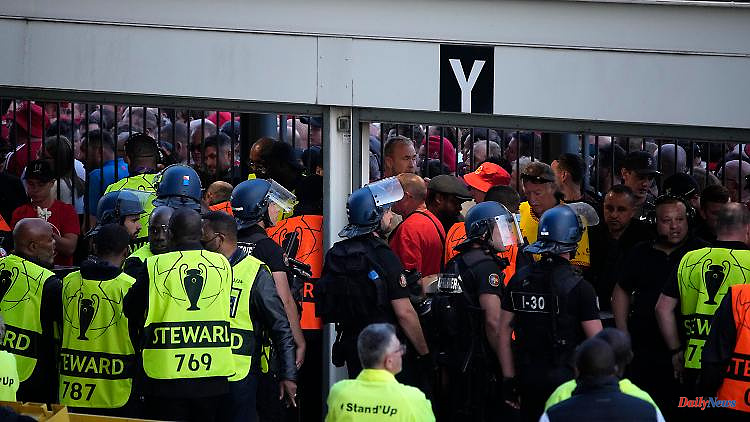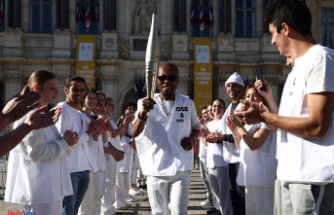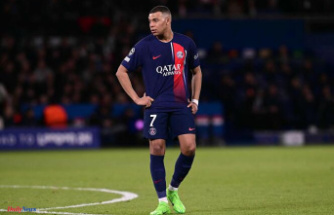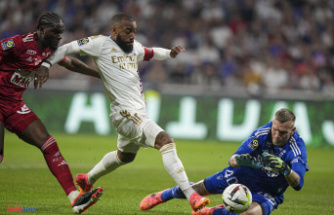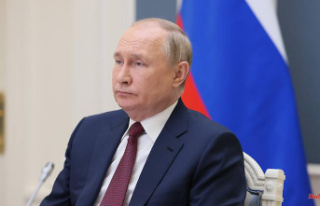Ahead of the Champions League final, UEFA only sells a fraction of the tickets to fans of Real Madrid and Liverpool FC. The tickets for the 90 minutes cost as much as a short vacation. Before the Spaniards win, chaos erupts in front of the stadium. The Story of a Failure.
In the end, of course, it was the fans' fault. As always with such events. UEFA expressed its sympathy for those who were in the situation through no fault of their own, but blamed the spectators. They just tried to gain entry to the final of the Champions League with fake tickets. That was not possible and hence the chaos.
This chaos had led to kick-off being postponed by 37 minutes and ensured that long after the start of the biggest game in club football in the world, thousands of fans were still standing in front of the gates of the Stade de France in Paris and, despite the long journey and exorbitantly high ticket prices, large parts of the missed game. The images available were chilling and suggested a number of reasons as to why it had happened.
According to numerous English media reports, the problems with admission had already become apparent more than two hours before kick-off. The organizers wanted to do everything right. They had wanted to check access authorization for the game well in front of the stadium, but they did so at a point that had bottlenecked the fans. When the situation there became dangerous, this control station was abandoned and fans came to the gates of the stadium.
There, some fans would have climbed over the security fence, but the majority stayed in the queues. Also to prevent this and to break up the crowds. "It wasn't really apparent where the masses should have dispersed," commented the "Guardian" in a report published shortly after the end of the game, which read like an indictment. Similar texts appeared in the "Telegraph", in the "Times", on "ESPN" or in the "Liverpool Echo". Did they all see something different than the emergency services around the stadium?
A reporter from the Associated Press reported restrictions on press freedom: "I was taken into a room by a security guard and had to remove my accreditation there," wrote Steve Douglas. "Then I was forced to delete the video footage of the admission problems. Otherwise I would be denied re-entry into the stadium." His colleague Rob Harris reported that some UEFA officials intervened to prevent security officials from filming the tear gas attack.
In the "Süddeutsche Zeitung" there was also talk of "numerous mobile phone thefts". With the phones thus acquired, some would have tried to gain access to the stadium. You have to know that in addition to the hard tickets that were still common years ago, the digital variant of the admission ticket stored on the mobile device will be used at the latest when the spectators return after the pandemic. In connection with the chaos, there was repeated talk of local young people who wanted to take advantage of the situation and gain access to the stadium during the chaos.
Hard tickets were reserved for those who appeared in one of the disturbing videos surrounding the final. A group of Liverpool fans showed them to an ESPN reporter's camera while simultaneously struggling with the tear gas that police apparently sprayed in rough quantities. Another video showed a kid in the Zidane shirt. The wandered around in front of the stadium without orientation after it was also used in a tear gas operation. Police officers and another person rush the boy on the video to help.
Both clubs received exactly 19,618 tickets and an additional 382 VIP tickets for the final. The price range for the coveted tickets was between 70 euros and 690 euros. A majority of these cards, 55.7 percent according to Liverpool, were around 180 euros. Of the remaining tickets, 12,000 were made available through the UEFA portal and 23,000 were not put on sale at all.
In the run-up, there had been great resentment on the part of the English club about the insufficient quota. Although the Reds had officially advised against traveling to Paris without a ticket, coach Jürgen Klopp was able to put himself in the shoes of the supporters. "It's just enormous what they're asking for," said the former Mainz coach about the admission prices and the few tickets and at least didn't advise the fans against traveling without a ticket. "Paris is big enough to go there without a ticket. Behave and celebrate," Klopp said in early May.
The Reds fans couldn't celebrate after the game, but they behaved according to everything that could be seen and heard on Saturday. In the end, this will have prevented a major catastrophe. Nevertheless, the summary of the evening remains a gloomy one: In a "preliminary" balance sheet, the Paris police registered 68 arrests and 238 injuries around the final, with the injuries said to be "minor" injuries.
However, what these figures cannot reflect is the further loss of trust in the football organizers, who also denied the blame and repeatedly pointed out the misconduct of the spectators with straw man arguments. First they were late, then they tried to get into the stadium with fake tickets. Although they announced that the incidents would be dealt with, those were the real problems. Not everyone saw it that way.
"The fans at the Champions League final bear no responsibility for tonight's fiasco," wrote Football Supporters Europe, an advocacy group for organized European fans, during the game. "Thousands are still standing in front of the stadium, staying calm in the face of the totally unreasonable situation. We call on the relevant authorities to ensure the safety of all fans." Liverpool were also unhappy, calling for an investigation into "unacceptable issues" during the match, with England legend Gary Lineker calling UEFA's words "bullshit".
The problems surrounding the organization of a final match are nothing new at UEFA. Just last week, the Glasgow Rangers and Frankfurt Eintracht fan groups who had traveled to the Europa League final complained about those unacceptable problems. Although they got to the Estadio Ramón Sánchez Pizjuán in Seville in time for the game, they were standing in front of closed drink stands in temperatures of 30 degrees. "People had to go to the toilet to get water. That was a disaster and, in my opinion, absolutely irresponsible," said Michael Gabriel, head of the nationwide coordination office for fan projects (KOS), and the situation from "a health perspective and safety aspects " classified as "highly dangerous".
At the final of the 2020 European Championship in July 2021, before the game between England and Italy, dangerous scenes also took place on Wembley Way, a narrow path between the subway and the entrance to Wembley Stadium. The "Süddeutsche Zeitung" later reported that the security forces were overwhelmed in the face of "a mob pumped up with chauvinistic pathos and all kinds of intoxicants". A four-digit number of fans got into the stadium that day without tickets. The English summer rain, England's defeat and the racist hostilities that followed pushed the organizational failure into the background at this point.
In all cases, the fans were spared serious injuries or far worse things. That still distinguishes football in the 2020s from that of the 1980s, the decade in which several tragedies also happened in Europe. The Hillsborough of 1989, the deaths of Heysel in 1985 - on May 29 of all days - are a memorial to these dark times.
But the failure of UEFA and the respective organizers, which is partly responsible for the highly dangerous situations surrounding the finals, is common to all three finals. High entrance fees, far too few tickets and always a disruptive factor: the European Football Union once again proved to be completely overwhelmed that evening when confronted with the reality of football enthusiasm. There are still. But associations and local organizers are working hard to rob them of this passion. Football walks on thin ice.

